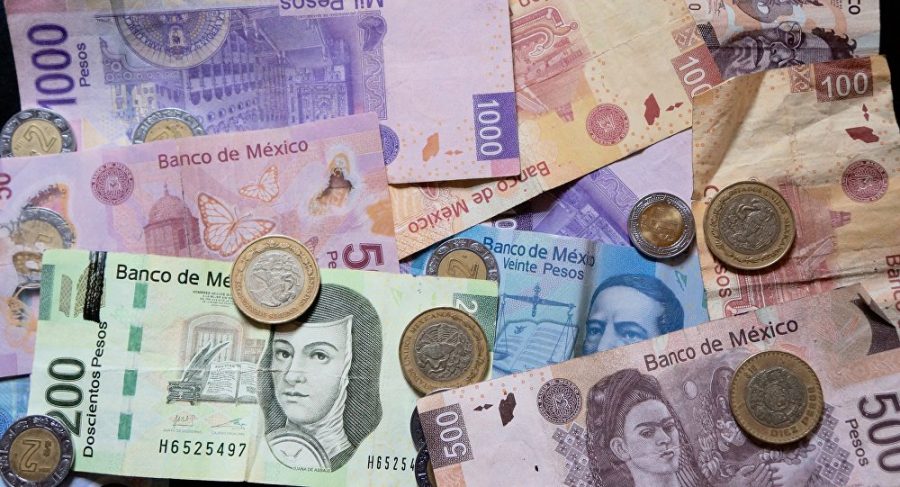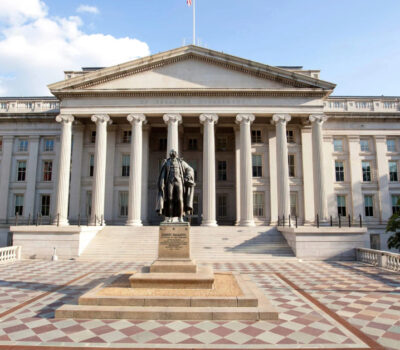International lenders active in Mexico are targeting less risky companies to maintain some exposure in a country adjusting to sweeping new policies from the newly-elected left-wing president Andrés Manuel López Obrador.
“There is still some uncertainty regarding the new public policies of the new administration, particularly those designed for economic growth. The market is still adapting to these new dynamics and ground rules,” said Jorge del Castillo, deputy country head of MUFG Mexico and head of Mexico corporate and investment banking, adding that the Japanese lender would stick to banking Mexico’s “largest companies,” such as investment grade borrowers or multinational names and sovereign entities as uncertainty persists.
López Obrador, commonly referred to by his initials AMLO, punctured investor confidence in Mexico when he scrapped plans for a partially-built US$13bn international airport in October, saying the initiative was a waste of taxpayers’ money.
AMLO, who took office on December 1, has also criticized predecessor Enrique Peña Nieto’s energy reforms, a key policy component enacted into law in 2013 that opens Mexico’s oil industry to the private sector.
The reforms ended Petróleos Mexicanos’ (Pemex) monopoly on the sector as private oil producers were given the opportunity to operate projects without, or in partnership with, the state-owned energy producer.
Pemex typically serves as a bellwether for Latin American credits, and its absence from the bond market so far this year has kept other Mexican corporates at bay.
The company, which was downgraded to BBB- in January by Fitch Ratings, has instead approached the bank debt market for potential loans and revolving credit facilities to meet the US$8bn in financing it needs this year, LPC previously reported. And similar facilities are available for Mexican companies that benefit from strong credit ratings or robust bank relationships, bankers and investors active in Mexico agreed.
“Some of the high quality Mexican names are trading wider in the secondary market, so they are looking at the bank market to bridge their debt,” said an investment banker active in Mexico’s capital markets.
KEEPING IT SIMPLE
In addition to Pemex, other bankers’ favorites such as Mexichem are also in discussions with international banks to renew credit lines.
The local petrochemicals company is negotiating the renewal of a US$1.5bn five-year facility it signed with 10 lenders in June 2014, sources said.
“Mexichem’s deal is a pure relationship discussion and telling of how we are looking at Mexico right now,” said a lender, adding that similar, low risk transactions were the ideal form of exposure to Mexico’s borrower base.
Bankers vested in Mexico have jumped at the chance this year to provide short to intermediate term loans where the stakes are seen as not too high.
Information technology services company Softtek in January refinanced an existing five-year term loan with a new US$150m facility from seven lenders while Sempra Energy’s Mexican subsidiary Infraestructura Energética Nova (IEnova) in February increased its revolving credit to US$1.5bn from US$1.17bn and extended the tenor to February 2024 from August 2020.
“Those with short-term or immediate financing needs are already looking at the markets, namely the bank market,” said del Castillo. “Medium and long-term investments, and those with capex plans, have been delayed or put on standby until the new administration settles on a clear strategy.”
Other well-recognized borrowers such as real estate investor FIBRA Prologis this month signed a US$290m bank loan that extended a transaction it signed in March 2018 out to February 2023 from 2022. And industrial property lessor Parque Industrial Mexicali signed a US$120m seven-year loan last month to refinance debt, sources said.
“There are deals for those stable companies that are not looking for anything too aggressive,” the lender said, referring to smaller-sized transactions with less long-term risk.
AHEAD OF THE CURVE
While lenders are increasingly selective over whom they bank with in Mexico, market players are aware that Mexico’s corporate borrowers got ahead of AMLO’s victory last July and raised debt, through bonds or loans, before volatility struck and when interest rates were lower.
Borrowers extended their debt maturities, and gorged on liquid lenders and an investor base keen to allocate money across the emerging markets in 2017 and the early stages of 2018, ahead of inevitable rate hikes from the US Federal Reserve and presidential elections throughout the region.
Latin American syndicated loan volume topped US$40bn in 2018, the largest figure since 2007, according to LPC data, and approximately US$30bn worth of last year’s transactions were completed before AMLO’s victory on July 1.
Mexico, Brazil, Paraguay and Colombia all appointed new presidents in 2018 and those companies that could access the marketplace beforehand snapped up debt under favorable conditions.
“The bigger companies took advantage of aggressive levels and pre-funded,” the first investment banker said. “That was the right choice because now issuers are affected by government policy.”
(Reporting by Aaron Weinman.Editing by Michelle Sierra and Lynn Adler)
International lenders active in Mexico are targeting less risky companies to maintain some exposure in a country adjusting to sweeping new policies from the newly . . .











